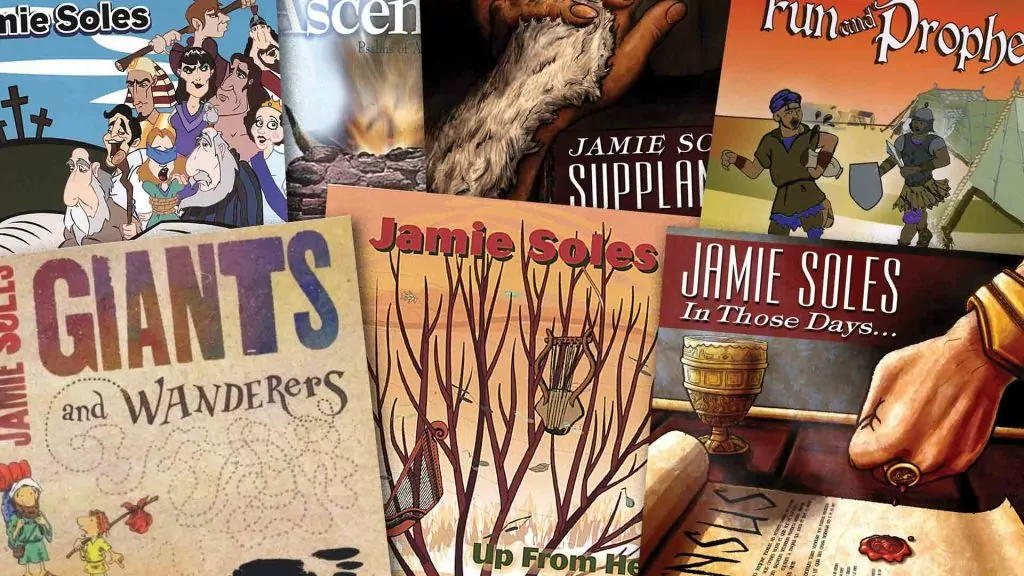
Science - Environment
7 biblical principles of environmental stewardship
As environmental issues have become centerpieces in recent elections, policy-making, and public discourse, Christians must promote a biblical understanding of what the environment is, what humanity’s relationship with the environment is, and what God’s plan for the environment is. The mandate to care for the planet – including the animals, plants, land, water, and air – is a theme present throughout God’s Word. Christians have a responsibility to articulate these biblical principles and to shape environmental public policy in a way that is consistent with Scripture.
Here are seven biblical principles about the environment and how humanity should interact with the non-human creation. These principles form building blocks for a Reformed Christian perspective on public policy concerning environmental care and expose flaws in other environmental perspectives.
PRINCIPLE 1
God, the Creator of all things, has commanded mankind to exercise fruitful stewardship over His creation
“In the beginning, God created the heavens and the earth.”1
Those opening words of Scripture form the foundation of environmental stewardship. Because He created the earth and everything in it, God is the sole proprietor of all creation. All of creation belongs to Him.2 No human can lay ultimate claim over any aspect of creation – land, natural resources, or animals.
Nevertheless, God delegated authority over creation to humanity at the very beginning of history. In Genesis 1:28, often called the cultural mandate, God commands mankind to
“be fruitful and multiply and fill the earth and subdue it and have dominion over the fish of the sea and over the birds of the heavens and over every living thing that moves on the earth.”3
In Genesis 2:16, He also placed the man “in the garden of Eden to work it and keep it.” Caring for the earth is one of God’s purposes for humanity.
 The first command in the cultural mandate - be fruitful - can be understood through the Parable of the Talents.4 In this parable, Jesus likens the Kingdom of God, which encompasses all of creation, to a master who entrusts his property to his three servants. The servants understand that the property under their care is not ultimately theirs but belongs to their master. This master will eventually demand an account of how his servants managed his property. The two servants who fruitfully invested their master’s money were rewarded. The third servant, who neglected to fruitfully invest it, was condemned for his unproductivity. If the servant who allowed his master’s property to remain stagnant was condemned, how much worse would it be for a servant who deliberately wastes or ruins his master’s resources?
The first command in the cultural mandate - be fruitful - can be understood through the Parable of the Talents.4 In this parable, Jesus likens the Kingdom of God, which encompasses all of creation, to a master who entrusts his property to his three servants. The servants understand that the property under their care is not ultimately theirs but belongs to their master. This master will eventually demand an account of how his servants managed his property. The two servants who fruitfully invested their master’s money were rewarded. The third servant, who neglected to fruitfully invest it, was condemned for his unproductivity. If the servant who allowed his master’s property to remain stagnant was condemned, how much worse would it be for a servant who deliberately wastes or ruins his master’s resources?
This framework of fruitful stewardship over financial resources can also be applied to mankind’s treatment of the rest of creation. God entrusts the non-human creation to humanity, not necessarily so that humanity can simply preserve it in its natural state, but so that humanity might be fruitful with it.5 This requires mankind to develop and transform the earth’s natural resources, while also preserving ecosystems that provide valuable goods and services to mankind and that declare the glory of God (see Principle 2).
Progress and development are implicit commands of God.6 As Dr. Cornelis Van Dam writes:
“The divine mandate involves harnessing creation’s resources and making the most of its potential while being careful to use the resources wisely… It is telling that although the world began with a garden it will end with a great and beautiful city.”7
At the end of our lives or at the end of the world, God will reward those who fruitfully managed the creation that He has given to humanity, but will punish those who have not repented from their neglect or active destruction of it. Fruitful stewardship is mandatory.
PRINCIPLE 2
All creation is valuable, but humanity, as the image-bearers of God, is the most valuable created being
Scripture demonstrates that the whole of creation has intrinsic worth in the sight of God.8 After each day of creation, God declared his creation to be good – day and night, land and sea and air, plants, sea creatures, birds, and all animals.9 He commands the living creatures to “be fruitful and multiply”10 and to “abound on the earth.”11 After the great flood, God covenants with Noah and “every living creature” that He will never again destroy the earth with a flood (Genesis 9:8-17); in this passage, God mentions “every living creature” six times.12 God also covenants with the earth (Genesis 9:13) and the day and the night (Jeremiah 33:19-25). The book of Job and the Psalms abound with descriptions of how God delights in His creation. Matthew 6:25-33 also illustrates God’s care for His creation; He feeds the birds of the air and clothes the grass of the field with glorious lilies. The various parts of creation, in turn, also declare the glory of their Creator.13
The environment also has value to mankind.14 The resources of creation have – food, water, air, stone, wood, metals – nourish us and allow us to improve our standard of living. Creation provides many ongoing services that are indispensable to human flourishing:15 For example, plants use photosynthesis to transform carbon dioxide into the oxygen required for human respiration.
Because creation is valuable both in the sight of God and humanity, God decreed how Israel was to exercise responsible stewardship over the environment in the Old Testament. Humanity was to allow animals to rest on the Sabbath16 and to treat animals well.17 Productive fruit trees were not to be cut down during the siege of a city, so that the productive capacity of the land would not be diminished.18 Even the land itself was supposed to rest fallow every seven years.19 Although these commands were made in the specific context of Old Testament Israel, the underlying principle to be responsible stewards over creation still applies.
While God values all of His creation, He uniquely values mankind that He made in His image.20 Although after every day of creation God pronounced His creation to be good, God declared that creation was very good only after His creation of man. Thus, humanity is not merely equal to the animals or some other part of creation. He set humanity to rule over the rest of creation and gave plants21 and later animals22 to humanity as food. God established His original covenant with humanity and made humanity the object of this covenant. And, in Matthew 6:25-33, Jesus says that if God devotes such care for birds and grass, how much more will He care for humanity?
Thus, a hierarchy exists in the created order.23 God, the sovereign and providential Creator, presides over both humanity and the other parts of creation. Humanity, the image-bearers of God, is below God but above the rest of creation.24 The non-human creation, although inherently valuable in the sight of God and man, rests at the bottom of this hierarchy. Humanity therefore should not adopt a “biocentric” philosophy that aims to preserve all life, nor an “ecocentric” philosophy that aims to preserve the environment in its natural state, nor an “anthropocentric” view in which nature’s only purpose is to serve humanity. Instead, humanity should adopt a “theocentric” view of both caring for and subduing the rest of creation in a manner prescribed by God.25
PRINCIPLE 3
God commands that humanity exercise both dominion and care over all of creation 26
In the cultural mandate of Genesis 1:28, God commands humanity to have dominion over the earth and to subdue it. Theologians point out that the original Hebrew word for subdue (kavash) is a “fairly strong term” that “means to overpower, to conquer, to bring under control.”27 This subduing of the environment includes extracting the natural resources of creation to increase human standards of living (both before and after sin infected the world). For example, God created hills out of which humanity “can dig copper”28 and trees that men could “cut down” for wood.29 Jesus both curses an unfruitful fig tree and suggests that it should be cut down, for “why should it use up the ground?”30 The Mosaic Law prescribed a number of practices to prevent the spread of disease.
Unfortunately, our ability to properly exercise dominion over God’s creation is limited by humanity’s finitude and is marred by sin.31 Humanity has the capacity to overconsume, pollute, and destroy as we endeavour to exercise dominion over the non-human creation.32 Focusing only on Genesis 1:28 may lead us to think we have the “right to do anything we want to the earth”33 – that the sole purpose of the environment is to serve as raw materials to fuel human needs and desires.34 We might ignore the health of other living creatures or long-term sustainability.
In case humanity is tempted to simply exploit nature, God balances this command to subdue the earth by revealing His purpose for humanity: to keep (ESV), to take care of (NIV), to tend (NKJV), or even to serve(YLT) the garden.35 Exclusive attention to this command in Genesis 2:15 may also lead to an incomplete understanding of environmental stewardship. Under a care-only philosophy, humanity is to preserve the environment the way it is, to never harm or kill animals, or to make conservation the highest calling of humanity.
Combining the commands of both of these verses (subdue and serve) may seem contradictory, but a proper Christian understanding of these terms makes them perfectly compatible. Authority and service go hand in hand within families, within government institutions, and within environmental stewardship.36
Christians acknowledge that human beings have an imperfect capacity to exercise responsible stewardship over the rest of creation. This requires humanity to continuously refine and re-evaluate its exercise of dominion and stewardship over the environment. We should study how our activities may threaten animal species, interfere with a nutrient cycle, or pollute a water source. The solution to imperfect stewardship is not to abandon the responsibility of stewardship altogether, but to develop our stewardship techniques.
PRINCIPLE 4
God commands humanity to multiply and fill the earth
 In the cultural mandate, God also commands humanity to multiply and to fill the earth, exercising stewardship – fruitfulness, dominion, and care – as they go.37 Indeed, He scattered humanity when they failed to spread out around the world.38 Humanity’s capacity for multiplying and filling the earth expanded markedly with the Industrial Revolution and modern medicine, prior to which the world population grew much more slowly and numbered only in the hundreds of millions. Earth’s population has multiplied many times over in the past two centuries, reaching approximately 7.8 billion people in 2020. The UN projects that the human population will peak at around 11 billion by the end of the century.39
In the cultural mandate, God also commands humanity to multiply and to fill the earth, exercising stewardship – fruitfulness, dominion, and care – as they go.37 Indeed, He scattered humanity when they failed to spread out around the world.38 Humanity’s capacity for multiplying and filling the earth expanded markedly with the Industrial Revolution and modern medicine, prior to which the world population grew much more slowly and numbered only in the hundreds of millions. Earth’s population has multiplied many times over in the past two centuries, reaching approximately 7.8 billion people in 2020. The UN projects that the human population will peak at around 11 billion by the end of the century.39
Although this rapid population growth allows humanity to fulfil God’s command to multiply and fill the earth at a whole new level, this significant growth has come with growing pains. This growth has led to problems such as the overexploitation of natural resources and excessive pollution. However, these problems are the result of specific human choices and habits, such as rampant materialism and consumerism,40 not simply the overall number of people. Although a large and growing population may exacerbate existing problems and even create new challenges, a growing population should be considered inherently good. Indeed, “inquisitive, creative, and resourceful human beings” are “the ultimate resource” in this world.41
Many secular environmentalists fail to recognize this. In their zeal to care for the environment, they oppose both population growth and particular human habits. Some go so far as to claim that humanity is a parasite destroying the environment, worthy of eradication.42 But such a perspective ignores the fact that God has placed humanity as active stewards over His creation. Human multiplication must be considered “a blessing, not a curse.”43
PRINCIPLE 5
Although God allows humanity to suffer the consequences of poor environmental stewardship, the end of history will occur according to God’s sovereign plan
A society’s eschatology – their view of how the world will end – will inform its policies on environmental stewardship. Secular environmentalists, ignoring the creation and providence of God, attribute the end of the world to human action or some natural disaster – an asteroid, a virus, or variation in the sun’s rays, for example. The fate of the planet rests in either the hands of humanity or the whims of chance.
A biblical worldview, however, understands that all of history, including the end of this world, is directed by God. God “created heaven and earth and everything in them” and continually “upholds and rules them by His eternal counsel and providence.”44 This includes animals, plants, and the physical environment. God upholds His creation in ways we describe as laws of nature (e.g. the law of gravity, the law of thermodynamics, the law of biogenesis, etc.). Indeed, these laws of nature illustrate the covenant faithfulness of God.45Although humanity may mistakenly ascribe these laws of nature to nature itself, Christians know that these laws are issued by a Supreme Lawgiver. Absolutely nothing in creation occurs without God’s direction or permission.
Despite the reality of God’s providence, God also allows humans to suffer the natural consequences of their actions. Adam and Eve’s disobedience and its consequence – the introduction of sin and evil into a good world – profoundly changed creation.46 As a consequence of man’s actions, God said, “Cursed is the ground because of you; in pain you shall eat of it all the days of your life; thorns and thistles it shall bring forth for you; and you shall eat the plants of the field. By the sweat of your face you shall eat bread.”47 These thorns and thistles represent how all of creation has been impacted by the Fall. Because of the original human sin, the living creation now naturally experiences suffering, sickness, and death.48 Romans 8:19-23 also speaks about how “creation was subjected to futility,” is in “bondage to corruption,” and is “groaning together in the pains of childbirth.”
In the same way humanity must continue to grapple with the environmental effects of sin today. Human activity can cause catastrophic environmental damage (e.g. the Chernobyl nuclear disaster or the Exxon-Valdez oil spill). A basic Christian eschatology does not “guarantee that some form of global or cosmic catastrophe will be averted,” just as we do not believe that any natural catastrophe – a devastating earthquake, hurricane, or volcanic eruption – will be averted because of God’s promise to Noah.49

Although God allows humanity to suffer the environmental consequences of sinful actions or negligence, the fate of the world is in God’s hands, not in human hands. Many prophesy that human activity will cause an environmental apocalypse, while others envision a technological utopia. Christians should reject both visions as unfounded. Although human care and dominion may contribute to the redemption or reconciliation of creation, only God can ultimately fix the sin and brokenness that afflicts this world.50
PRINCIPLE 6
God created the environment to be simultaneously resilient and dynamic 51
God created every individual organism, plant, animal, person, and the wider environment with an astounding resiliency. The human body, for example, can survive weeks without food, can heal cuts to its skin, and can run a marathon. The earth also has positive and negative feedback loops that keep weather patterns predictable, animal populations in check, and nutrients recycling themselves all across the globe.
However, the environment is also fragile.52 Microscopic doses of certain natural and man-made drugs are lethal.53 An extra copy of a particular gene on a particular chromosome causes Down syndrome. The eruption of a single volcano – such as the eruption of Mount Pinatubo in 1991 – can temporarily lower the world temperature and cause local or global famines. A single virus like COVID-19 can kill millions of people worldwide.
The environment is sufficiently resilient to support huge numbers of people, even well beyond the current number, without apocalyptic impacts to our atmosphere, oceans, or critical habitats, if managed well.54This is a comfort to Christians who rest in the sustaining, providential care of God who will bring history to its conclusion in His timing. But the environment is not so resilient that we can do whatever we want without regard for our impact on the environment. The fragility of the environment necessitates the exercise of environmental stewardship by Christians and non-Christians alike so that we do not reap the consequences of our unwise actions.55
PRINCIPLE 7
Although cost-benefit analysis is an important tool to determine the wise use of resources, cost-benefit analysis cannot be completely comprehensive
Many attempts to preserve or exploit the environment stem from an incomplete assessment of the value of the environment. Carefully weighing the costs and benefits is required in effective environmental stewardship.56 Of course, the challenge is to account for all the relevant costs and benefits (e.g. monetary, health, and environmental costs and benefits across wide swaths of the human population) as much as is reasonably possible.
These costs and benefits cannot be properly estimated by experts in any single field. Although ecologists, biologists, chemists, and atmospheric and environmental scientists may lead the evaluation of the effect on the environment, experts in other fields – economics, political science, law, ethics, sociology, and psychology – must also contribute to developing the best human response.
However, much debate exists about how to value the benefits that the environment provides and the cost of disturbing the environment. Some secular environmentalists, immersed in their study of nature, assign almost infinite value to the natural environment. Other professionals and laypersons, ignorant of the existence of many goods and services that the environment provides, assign virtually no value to the environment. Both forms of creation’s value mentioned earlier – its intrinsic value in God’s sight and its utilitarian value to humanity – must be considered when estimating costs and benefits.
It is impossible to precisely appraise this value that God places on His creation and plug it into a cost-benefit equation. Instead, Christians should marvel at the handiwork of God, remembering that humanity is a steward of His creation. Even if a forest did not help convert carbon dioxide into oxygen or its trees provide useful timber for construction, it still reflects God’s creativity and praises Him; it should not be destroyed without ample cause, even if humanity cannot assign monetary costs and benefits to it. Thus, although empirical cost-benefit analysis is critically important, the moral component of environmental stewardship must be considered as well.
CONCLUSION
These seven principles outline a faithful Christian understanding of environmental stewardship that is fundamentally different from a secular understanding of the environment. Christian environmental stewardship recognizes that the environment is the creation of God and properly understands the responsibility of humanity, as the image-bearers of God, to exercise stewardship over the resilient yet fragile environment. Although humanity should carefully consider the consequences of their actions, Christians understand that God – not man – controls the end the world.
May each of us be active, biblical stewards of the world that God has entrusted to our care!
Levi Minderhoud is the BC Manager for ARPA Canada where he endeavors to bring biblical principles to bear on political issues of all stripes. In his spare time, he enjoys playing hockey, tickling the ivory, sharpening his wits with a good board game, and fellowshipping with friends and family. He and his family reside in Mission, BC, and attend the neighboring Abbotsford United Reformed Church. This is a slightly abbreviated version of a longer article available at ARPACanada.ca.
References and Notes
1) Genesis 1:1
2) Psalm 24:1
3) See also Genesis 1:29 and Psalm 115:16
4) Matthew 25:14-30
5) Timothy Bloedow, Environmentalism and the Death of Science (Ontario: Freedom Press Canada Inc., 2008), 41–42.
6) J. Michael Beers et al., “The Catholic Church and Stewardship of Creation,” in Environmental Stewardship in the Judeo-Christian Tradition (Grand Rapids, MI: Acton Institute, 2007), 44–45; Rodney Stark, The Victory of Reason: How Christianity Led to Freedom, Capitalism, and Western Success (New York: Random house, 2006).
7) Cornelis Van Dam, God and Government, 178; see also Wayne Grudem, Politics According to the Bible, 322. and Timothy Bloedow, Environmentalism and the Death of Science, 43
8) Steven Bouma-Prediger, For the Beauty of the Earth: A Christian Vision for Creation Care, Second Edition (Grand Rapids, MI: Baker Academic, 2010), 120.
9) J. Michael Beers et al., “The Catholic Church and Stewardship of Creation,” 35.
10) Genesis 1:22
11) Genesis 8:17
12) Genesis 9:9-10, 12, 13, 15, 16, 17; see also Steven Bouma-Prediger, For the Beauty of the Earth: A Christian Vision for Creation Care, 92.
13) J. Michael Beers et al., “The Catholic Church and Stewardship of Creation,” 36. See also Job 38-41; Psalm 19; Psalm 104; Psalm 148; and Psalm 150
14) E. Calvin Beisner, Creation Stewardship: Evaluating Competing Views (The Cornwall Alliance for the Stewardship of Creation, 2020), 10.
15) Sandra Diaz et al, “Assessing Nature’s Contribution to People,” Science Magazine 359, no. 6376 (2018): 270–72; W. M. Adams, “The Value of Valuing Nature,” Science Magazine 346, no. 6206 (2014): 549–51; Steven Bouma-Prediger, For the Beauty of the Earth: A Christian Vision for Creation Care, 157.
16) Exodus 20:10; 23:12; 34:21
17) Deuteronomy 25:4; Proverbs 12:10
18) Deuteronomy 20:19-20
19) Exodus 23:10-11; Leviticus 25
20) Wayne Grudem, Politics According to the Bible, 325; see also Matthew 12:12, 10:31
21) Genesis 1:29
22) Genesis 9:2-3
23) Cornelis Van Dam, God and Government, 173.
24) See Psalm 8
25) Calvin Beisner et al., “A Biblical Perspective on Environmental Stewardship,” in Environmental Stewardship in the Judeo-Christian Tradition, n.d., 70; Steven Bouma-Prediger, For the Beauty of the Earth: A Christian Vision for Creation Care, 78, 96–98, 112.
26) J. Michael Beers et al., “The Catholic Church and Stewardship of Creation,” 39.
27) Cornelis Van Dam, God and Government, 176.
28) Deuteronomy 8:9
29) Deuteronomy 19:5 and 2 Kings 6:4
30) Matthew 21:18-22 and Luke 13:6-9
31) James R. Skillen, “Stewardship and the Kingdom of God,” in Beyond Stewardship: New Approaches to Creation Care, ed. David Paul Warners and Matthew Kuperus Heun (Grand Rapids, MI: Calvin College Press, 2019), 102.
32) Calvin Beisner et al., “A Biblical Perspective on Environmental Stewardship,” 84.
33) David Paul Warners and Matthew Kuperus Heun, Beyond Stewardship: New Approaches to Creational Care (Grand Rapids, MI: Calvin College Press, 2019), 9, 12–13.
34) David Paul Warners and Matthew Kuperus Heun, 12–13.
35) Genesis 2:15; for a fuller explanation of how humanity is to “serve” the garden, see Steven Bouma-Prediger, For the Beauty of the Earth: A Christian Vision for Creation Care, 64.
36) Steven Bouma-Prediger, “From Stewardship to Earthkeeping: Why We Should Move beyond Stewardship,” in Beyond Stewardship: New Approaches to Creation Care, ed. David Paul Warners and Matthew Kuperus Heun (Grand Rapids, MI: Calvin College Press, 219AD), 81–91.
37) Genesis 1:28
38) Genesis 11:1-9
39) United Nations, “Population,” 2020, https://www.un.org/en/sections/issues-depth/population/index.html.
40) Steven Bouma-Prediger, “From Stewardship to Earthkeeping: Why We Should Move Beyond Stewardship,” 71.
41) David VanDrunen, Politics after Christendom: Political Theology in a Fractured World (Grand Rapids, MI: Zondervan, 2020), 243; Robert A. Sirico, “The Ultimate Economic Resource,” Acton Institute, 2010, https://www.acton.org/pub/religion-liberty/volume-8-number-3/ultimate-economic-resource; Julian L. Simon, The Ultimate Resource (United States: Princeton University Press, 1996).
42) J. Michael Beers et al., “The Catholic Church and Stewardship of Creation,” 51; Timothy Bloedow, Environmentalism and the Death of Science, 31; Cornelis Van Dam, God and Government, 182; Wayne Grudem, Politics According to the Bible.
43) Calvin Beisner et al., “A Biblical Perspective on Environmental Stewardship,” 86.
44) Heidelberg Catechism, Question and Answer 26; see also Question and Answer 27 for a definition of providence
45) Arnold E. Sikkema, “Laws of Nature and God’s Word for Creation,” Fideles 2 (2007).
46) Genesis 3; Heidelberg Catechism Q&A 6
47) Genesis 3:17-19
48) Clarence W. Joldersma, “The Responsibility of Earthlings for the Earth: Graciousness, Lament, and the Call for Justice,” 63–64.
49) David Atkinson, “Climate Change and the Gospel: Why We in the Church Need to Treat Climate Change More Urgently” (Operation Noah, 2015), 17–18, http://operationnoah.org/wp-content/uploads/2015/02/Climate-and-Gospel-David-Atkinson-30-01-2015.pdf.
50) Katharine Hayhoe and Andrew Farley, A Climate for Change: Global Warming Facts for Faith-Based Decisions, 133; David Paul Warners and Matthew Kuperus Heun, Beyond Stewardship: New Approaches to Creational Care, 6.
51) Timothy Bloedow, Environmentalism and the Death of Science, 2.
52) Richard A. Swenson, “How Balance Is Displayed in Every Quadrant of the Created Order,” in In Search of Balance (Colorado Springs, CO: NavPress, 2010).
53) For example, the lethal ingestion dose of botulinum toxin is 30 nanograms; 39.2 grams of the toxin would “be sufficient to eradicate humankind;” see Ram Kumar Dhaked et al., “Botulinum Toxin: Bioweapon & Magic Drug,” The Indian Journal of Medical Research 132, no. 5 (November 2010): 489–503.
54) Michael Shellenberger, Apocalypse Never: Why Environmental Alarmism Hurts Us All, Digital Edition (Harper Collins, 2020).
55) David Atkinson, “Climate Change and the Gospel: Why We in the Church Need to Treat Climate Change More Urgently,” 13.
56) Cornwall Alliance, “The Biblical Perspective of Environmental Stewardship: Subduing and Ruling the Earth to the Glory of God and the Benefit of Our Neighbors”; Environmental Stewardship in the Judeo-Christian Tradition, 58; see also Luke 14:28






























